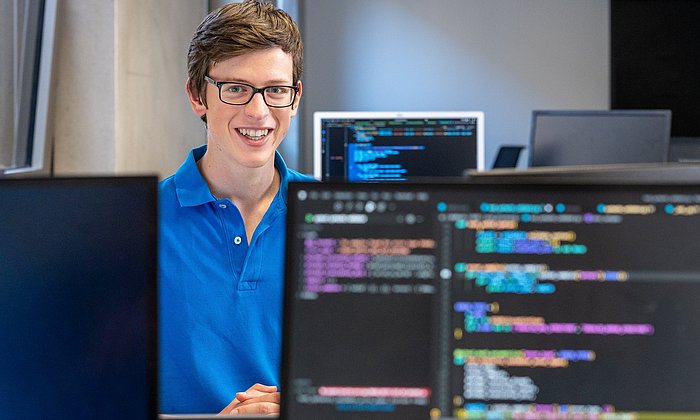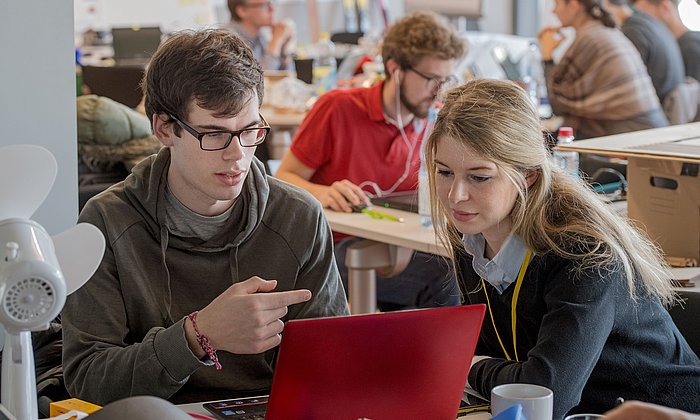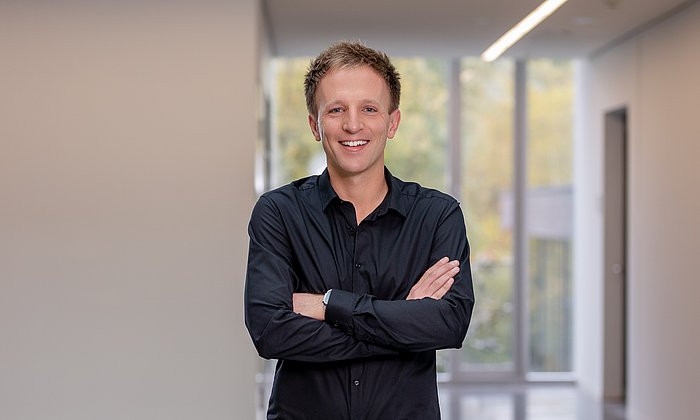OneTutor startup supports students with AI-powered chat and quizzes
Successful study with AI
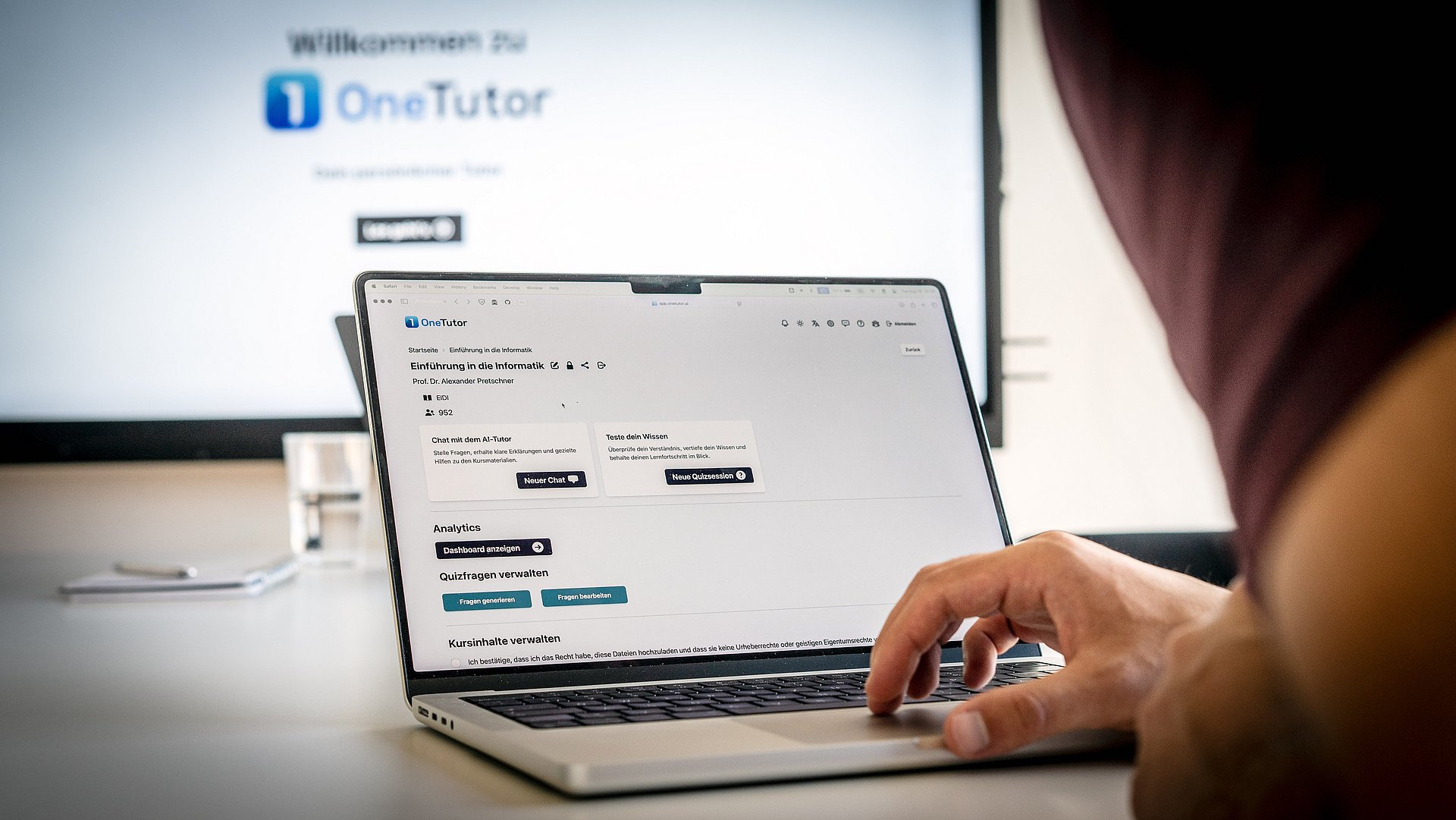
OneTutor is an AI-based tutor that combines two key functions. First, students can ask questions on lecture notes both during and after lectures. The AI tutor delivers answers based on the lecturer’s own notes. This reduces the probability of wrong answers, for example caused by hallucinations in the language model. Second, a quiz function enables students to review the material and explore it in greater depth. Lecturers curate the quiz questions and answers and can also access anonymized data on the questions that students are asking to gain immediate feedback on which topics are well understood and which ones need clarification.
“We wanted to develop a system that would provide students with real support in their studies while helping lecturers to see where students still have gaps in their knowledge or do not yet fully understand the material,” says OneTutor co-founder Philipp Csistian, who studied informatics at TUM.
Strong demand from other departments and universities
The founders of OneTutor first met in a project course, where participants were assigned the task of developing an AI tutor in small groups. They coded a learning tool that greatly impressed their supervisor Alexander Pretschner, professor of Software and Systems Engineering and future co-founder of the startup. After this initial success, they continued to develop their AI tutor as part of their master’s thesis and tested it in a lecture. Other departments and universities were already showing interest in using the tutor during this pilot phase. In May of this year, the five students studying Informatics, Data Engineering and Analytics, and Information Systems finally set up their own start-up company. They received support from the TUM Startup Advisory Office and the TUM Venture Lab Software & AI.
The tool now has more than 14,000 active users and is being used in over 620 lectures at 30 German and Austrian universities. Students have asked OneTutor more than 245,000 questions and answered more than 400,000 quiz questions. Along with offering the system at increasing numbers of universities, the startup also plans to expand into such areas as continuing education and vocational training.
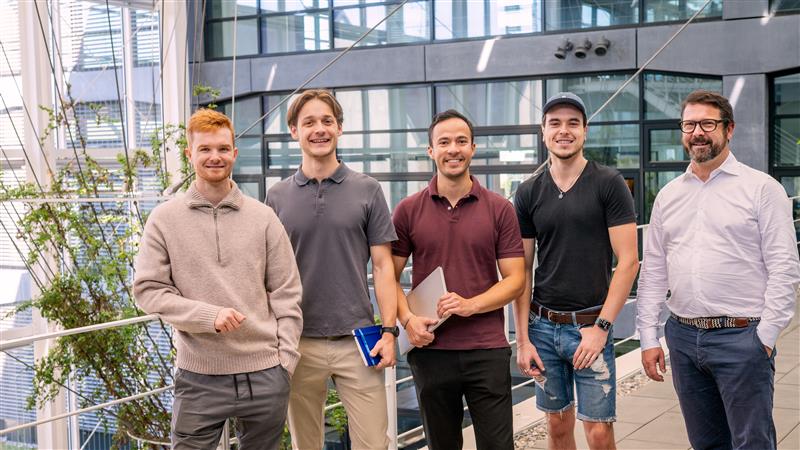
Accompanying project tests effectiveness of OneTutor
The first results from the pilot phase already indicate that students tend to use OneTutor especially in the classroom for clarification of lecture contents. The quizzes, by contrast, are used intensively before and after lectures. In the exam, active users also had a considerably higher success rate compared to their fellow students who did not use the tool.
For improved analysis and understanding of the impact of OneTutor on students’ success, the three-year project “AIffectivness in Education”, headed by the Bavarian Research Institute for Digital Transformation (bidt) of the Bavarian Academy of Sciences, was launched in the spring of this year. It will scientifically investigate the effectiveness of OneTutor in approximately 100 lectures at 10 Bavarian universities.
“OneTutor is an example of how intelligent digitization can create tangible added value for students and teachers,” says Alexander Pretschner. “I am particularly pleased to note that the startup originated in one of my student project courses.”
The innovation ecosystem with TUM at its center is considered one of the most successful deeptech hubs in Europe. Its particular strengths are its strong, diverse network and extremely specific support. In initiatives and co-labs, start-ups work on innovations with established companies, experts, investors and administration. TUM and UnternehmerTUM, the Center for Innovation and Entrepreneurship, support start-up teams with programs that are precisely tailored to the individual phases of the start-up and the teams. The TUM Venture Labs offer direct access to cutting-edge research, technical infrastructure and market expertise in twelve fields of technology. Most recently, more than 100 companies were founded at TUM in one year and more than 1,100 start-up teams were supported by UnternehmerTUM and the Venture Labs. UnternehmerTUM, which invests with its own venture capital fund, has twice been voted Europe's best start-up center by the Financial Times.
Technical University of Munich
Corporate Communications Center
- Julia Rinner
- presse@tum.de
- Teamwebsite
